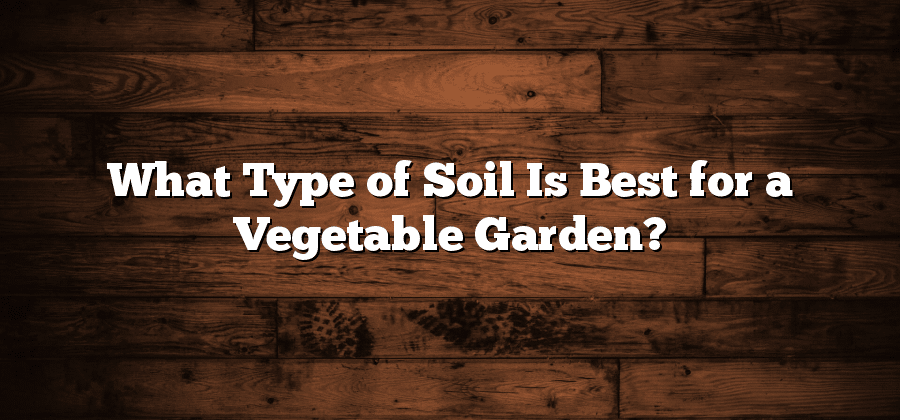Soil Composition for Optimal Vegetable Growth
Healthy and nutrient-rich soil is a fundamental element for achieving optimal vegetable growth in any garden. The composition of the soil plays a crucial role in nurturing the plants and providing them with the necessary nutrients and support. The ideal soil composition for vegetable growth is a balanced blend of minerals, organic matter, air, and water.
Minerals such as clay, silt, and sand are important components of soil composition. Clay provides nutrients and retains water, while sand improves drainage and allows oxygen to reach the plant roots. Silt, on the other hand, contributes to soil fertility and helps retain moisture. By understanding the mineral composition of the soil and making necessary adjustments, gardeners can create an environment that promotes healthy root development and overall plant vitality. Additionally, organic matter, such as compost or well-rotted manure, acts as a natural fertilizer, enriching the soil with essential nutrients and improving its ability to retain moisture. These components collectively contribute to the soil’s ability to support vigorous vegetable growth.
Ideal pH Levels for Vegetable Gardens
The pH level of soil plays a vital role in the success of vegetable gardens. It determines the availability of nutrients to plants and affects the overall health and growth of vegetables. Different vegetable plants have different pH preferences, so it is important to understand and maintain the ideal pH levels in your garden.
Most vegetable plants prefer slightly acidic to neutral soil with a pH range of 6.0 to 7.0. This range allows for optimal nutrient uptake by the plants, ensuring their healthy development. However, certain vegetables have specific pH requirements. For instance, potatoes thrive best in slightly acid soil with a pH level between 5.0 and 6.0, while brassicas like cabbage and broccoli prefer a slightly alkaline soil with a pH of around 7.0 to 7.5. To determine the pH level of your garden soil, you can perform a simple soil test using a testing kit, available at most gardening centers. If the pH level is not within the desired range for your specific vegetables, you can adjust it by incorporating amendments like lime to raise the pH or sulfur to lower it. Regular monitoring and maintenance of pH levels will help ensure the health and productivity of your vegetable garden.
The Importance of Well-Drained Soil
Good gardening practices involve not only choosing the right plants and providing them with adequate nutrients, but also ensuring that they are grown in well-drained soil. This is because well-drained soil plays a crucial role in the overall health and productivity of vegetable gardens.
When soil is poorly drained, excess water tends to accumulate around the roots of the plants, depriving them of oxygen and causing root rot. This, in turn, can lead to stunted growth and even the death of the plants. In addition, waterlogged soil creates an environment that is favorable for the growth of harmful fungi and bacteria, which can further damage the plants. Thus, by ensuring that the soil in your vegetable garden is well-drained, you not only optimize growth and yield but also minimize the risk of diseases that can undermine the health of your plants. So, how can you ensure that your soil is properly drained for successful vegetable gardening?
Organic Matter: A Key Ingredient for Healthy Soil
Organic matter is an essential component for maintaining healthy soil in vegetable gardens. It refers to any material that comes from living organisms or their byproducts, such as plant residues, animal manure, and compost. Incorporating organic matter into the soil provides a range of benefits that promote optimal vegetable growth.
One of the primary advantages of organic matter is its ability to improve soil structure. It helps to create a well-aerated soil that promotes root development and penetration. When organic matter decomposes, it forms aggregates that bind soil particles together, creating pore spaces for air and water movement. This facilitates the exchange of gases, allows for root exploration, and enhances nutrient uptake by plants. Furthermore, organic matter aids in retaining moisture in the soil, preventing water runoff and minimizing soil erosion.
Understanding Soil Texture for Vegetable Growth
Soil texture is a crucial factor in determining the success of vegetable growth. It refers to the size of the mineral particles that make up the soil, including sand, silt, and clay. Each particle size influences the soil’s ability to retain moisture and nutrients, as well as its drainage and aeration properties.
Sandy soil, for example, is composed of large particles that drain quickly but do not hold moisture well. This can be problematic for vegetable gardens, as plants may not receive adequate water and nutrients for optimal growth. On the other hand, clay soil is made up of smaller particles that hold water and nutrients tightly, leading to poor drainage and aeration. This can suffocate the roots of vegetables and inhibit their growth. Achieving the right balance of soil texture is essential for supporting healthy vegetable crops.






